Here at Villa Kali Ma, we feel passionately that every woman has a right to peace of mind, body, and soul. To be distracted, disturbed, and restless is a form of misery that haunts too many of us!
Not only is it painful to live in a state of disarray and disorder, but our inattention to our inside depths robs us of the chance to glimpse the perfect beauty inside us. Only in the stillness of peace are we able to catch sight of the crystalline design that lies dormant inside our hearts!
We are unique and unrepeatable, so if we never get to activate what lies within us, it is a missed opportunity of the greatest proportions. The good news is, that we always have the chance to try again to set aside all that would lead us away from ourselves. Let’s do our best to return to the simple joy of being that awaits us like a treasure at the end of a long hunt!
Inattention, Hyperactivity, and Impulsivity

Attention Deficit Hyperactivity Disorder, ADHD, is a form of suffering that afflicts more and more people, according to the meteoric rise in diagnoses and prescriptions for ADHD-related medications. October is designated ADHD Awareness Month, a yearly occasion to reflect on the meaning of this particular form of soul trouble.
In the United States, ADHD is one of the most commonly diagnosed mental health disorders, especially among children. The symptoms are summed up in the archetype of the hyper, distracted, un-subduable child, or the contemporary adult who struggles to focus, follow through on tasks, and sit still for long periods.
ADHD is diagnosed when a specific profile of behavior is observed in a person, which includes three key factors: inattention, hyperactivity, and impulsivity.
Inattention is the diagnostic label for when a person finds it hard to focus and follow instructions. Hyperactivity is the label for a condition of needing to move constantly in situations where it is inappropriate. Impulsivity is the label given to a person who has trouble suppressing instincts and urges to act. Inattention, hyperactivity, and impulsivity all in the same person is the diagnostic profile of ADHD.
Why is National ADHD Awareness Month Important?
Many of us can relate to the description above, of struggling to focus and sit still. That’s because as a collective, we are witnessing a serious loss of the ability to experience basic self-discipline and the benefits of concentration and focus.
This national loss of the ability to concentrate and pay attention is due to many factors and may include everything from the impacts of social media, changes to the education system, and what we’re eating. Toxic exposures from agricultural and manufacturing practices and other factors contributing to poor physical health and neurology have been theorized to play a significant role.
It’s important to understand that even if you relate strongly to the symptoms of ADHD, you may not have a clinical case. To be diagnosed clinically with ADHD, it is required that the symptoms of inattention, hyperactivity, and impulsivity represent a significant disruption to one’s ability to perform basic tasks required for life.
It is widespread to find it somewhat challenging to focus and complete tasks, and there are many reasons besides ADHD which can explain why you may have problems with poor focus and impulsivity.
The reason it’s important to be mindful of whether or not you qualify for an ADHD diagnosis is that sometimes people take a diagnosis to mean that they are in a permanent or incurable state, or identify with their diagnosis in a way that doesn’t serve them (at least, that’s happened to some of us at Villa Kali Ma!). If we start to think of our diagnosis as a part of who we are, or even just a fixed state, we may form attachments to being sick that limit ourselves unnecessarily.
The Push to Medicate ADHD Symptoms

ADHD diagnoses are usually paired with a prescription for a stimulant like Ritalin. Stimulants represent the risk of addiction and change brain chemistry, so introducing them to your own or your child’s nervous system is something to be carefully considered.
More and more voices within the medical and psychiatric community have raised questions about the narrative surrounding the supposed efficacy of stimulant medications, and these voices say that short-term benefits are followed by long-term detrimental outcomes. A good reference if this is news for you may be this overview from Mad in America:
Discomfort due to struggles with attention is widespread, we are not alone in this trouble. It is in our interest to consider the many holistic paths to recovery of our ability to have attention, focus, peace, and stillness, before necessarily assuming that we have a disease that can only be treated, not cured.
That said, each woman should find out for herself and walk her path! No judgment or doom is casting if you do feel you have clinical ADHD, nor if you do decide that medication is the path for you. You are allowed to try anything and find out for yourself, so please follow your own heart. Everyone deserves help and needs to discern for themselves, what’s best and right for them.
Here at Villa Kali Ma, we would define our support for National ADHD Awareness Month as helping to spread and uphold compassionate awareness of the suffering and challenges related to the widespread phenomenon clinicians call ADHD, including the many possible interpretations of why ADHD continues to sweep through the nation at such alarming rates.
It’s important to look out for and support people who are bearing the impacts of ADHD topics, such as children, parents, and teachers. Millions of people in the US are affected by the negative effects of ADHD, and loving, informed awareness of their suffering is important. Let’s not leave people alone with this burden.
How to Observe National Awareness Month
How might you personally help with the topic of ADHD?
If you’re motivated to help shine a light on the complexities of this topic, then your loving intentions to help share awareness will guide you.
Here are our ideas:
1. Watch the numbers and the narrative
Be aware of the rising numbers of diagnoses and prescriptions and ponder in your heart what that means to you. Why is ADHD on the rise? Are we getting better as a nation? If not, why not? What do you think a solution could be? How is the situation being framed and how is the narrative being told to us? What is the story about ADHD? What do you personally make of it all?
2. Start Dialogues
At Villa Kali Ma, we are big believers in considering different angles and exploring personal points of view. We live in a world of multiple truths coexisting, and each person’s puzzle piece helps make the biggest picture more clear.
By engaging curiously and compassionately with the topic, you can help spark awareness and spread compassionate awareness among people in a situation to make changes that can help humanity.
It’s especially helpful to talk with people who represent an opposite point of view from your own. If you think ADHD is being overdiagnosed, talk with someone who believes it is underdiagnosed. If you think stimulant medications are bad for children, talk to someone who has a personal positive story of recovery and benefit long term. On the other side, if you’re sure that the medical path is the only way forward, engage with people who have healed their ADHD with yoga. And so on!
3. Share your Story
If you have personal experiences with symptoms or even a clinical diagnosis of ADHD, and/or experiences with stimulant medication, share your story! For other people who suffer from the same struggles, but are isolated, hearing even one person’s true, first-person narrative can be all the difference needed to feel less suffering around it.
For humanity to recover and face the many burdens we’re up against, we need to be less isolated and less ashamed of whatever it is we’re honestly grappling with. We can be the first people to reduce shame and isolation around us just by being open about the unique details of our own experiences.
4. Educate Yourself
In the interest of forming your own opinion based on what has truth resonances for you, we suggest perusing both the information put forth by entities like ADHD Awareness Month, as well as by people who explore alternative ways of understanding and healing the impactful presence of ADHD symptoms in our world, such as Robert Whitaker and those exploring the benefits of functional medicine approaches to psychiatry, such James Greenblatt. More information will never hurt the truth.
5. Practice Your Peace of Mind Skills
Finally, let’s not forget that ancient wisdom teachings from cultures around the globe have offered a solution to the problem of scattered monkey minds and impulsive behaviors for thousands of years already – meditating!
Meditating is a little bit hard, I know, it’s true (if you resonate, you may want to read my post on meditation tips for people who don’t like meditating).
But meditation is hard in that way that it’s hard to run when you’re out of shape – the solution is just to do it. May we all be blessed with the humility to start where we are! If we can only meditate for five minutes, let us do that. If we can find peace through listening to classical music or after going for a run, let’s do that! Whatever works!
If we actively work on our peace skills from wherever we’re at, we are actively contributing to healing the imbalance of unruly, uncontained attention that is hurting so many of us and our loved ones. Sometimes the best thing we can do is hold a peaceful space for others who can’t do that right now.
Thanks for reading!

